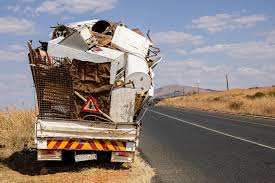The Supreme Court asked Delhi’s lieutenant governor Anil Baijal on Friday to consider forming an expert committee to frame a policy on solid waste management in the national capital amid growing concern over garbage being dumped in the city.
There will be no solution to the this problem unless the authorities and citizens come together and take some action.
The complete failure in the management of the Capital’s waste has led the Supreme Court to term the city’s solid waste problem, which it called “alarming” in 2016, to “critical”. Having pulled up the civic authorities, the State and Central Governments, the apex court has now directed its ire at Delhi’s Lieutenant Governor. He has been instructed to constitute an expert committee which would also include members of civil society and RWA representatives to look for a sustainable system to solve Delhi’s garbage problem. Tracing the Capital’s feeble fight against mountains of waste, one may find innumerable statistics, numerous court orders and telling case studies but results on the ground remain elusive. Of the 1,00,000 metric tonnes of solid waste generated in the country every day, Mumbai and Delhi are guilty of producing the maximum. According to the Central Pollution Control Board (CPCB), the garbage produced every day in Delhi increased from 400 tonnes in 2000 to more than 8,700 tonnes in 2015. Today, Delhi generates about 9,000 tonnes of waste daily. The CPCB has estimated the generation of waste to multiply four times by 2030. Even more worryingly, of the 62 million tonnes of waste generated every year, less than 60 per cent is collected and only around 15 per cent is processed/recycled. In essence, a large burden of the city’s waste is borne by landfills. All landfills in the Capital, as also across the country, are saturated and are functioning beyond permissible limits. Yet lessons were not learnt from the collapse of the Ghazipur landfill site which claimed two lives. The failure is also of the municipal corporations and not just the Central and State Governments for not having implemented the Solid Waste Management Rules, 2016. Had the Rules been followed, most landfills would have been shut down. Also, a one-size-fits-all solution which is what depending on landfills alone amounts to, will not work. Opening new landfills as proposed by the Delhi Government will do nothing to tackle the problem.
The solution, however, does not lie just with the authorities getting their acts together. In large part, the problem is compounded because citizens do not follow any solid waste disposal practices. Failure to segregate recyclable and non-recyclable waste at source is the beginning of the problem. In searching for a sustainable system for waste management, the proposed expert committee panel must focus on arriving at a point of unity between the municipalities and citizens to come together to segregate waste. The country’s megacities need to take a cue from smaller cities like Mysore, Panaji and Alappuzha which have taken recourse to a simple solution of recycling at source. Localities too must be held responsible for disposing the waste they generate and the not-in-my-backyard mentality when it comes to the location of small, hi-tech waste collection and processing plants has to be demolished. If you produce it locally, you must be prepared to process it locally too.
Writer: Pioneer
Courtesy: The Pioneer








 OpinionExpress.In
OpinionExpress.In















Comments (0)